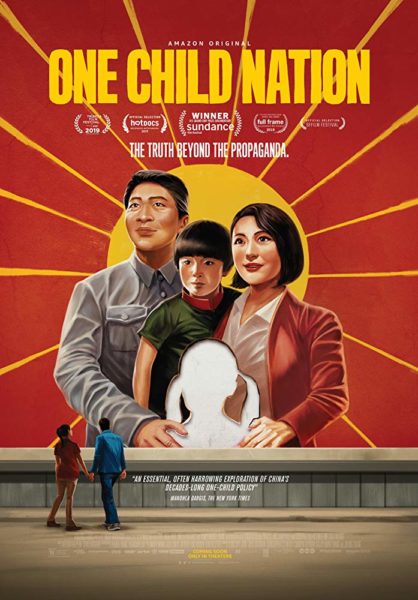https://youtu.be/S6w89blmdM8
I first heard of One Child Nation after seeing a Facebook posting by Vox about the documentary:
“Documentarian Nanfu Wang grew up in rural China under the country’s “one child” policy, which lasted from 1979 to 2015. Her own parents had two children, since the law made an exception for families living in rural areas, as long as the children were at least five years apart — but not until after her mother narrowly escaped involuntary sterilization. Many other women were not so lucky. The policy’s mental, physical, and emotional toll on the country, especially its women, was tremendous.
To enforce such an invasive policy on a population as large as China’s required more than just strict policing — it required self-policing, especially in rural areas, far away from more densely populated urban centers. So, as One Child Nation shows, the Chinese government blanketed the country with propaganda intended to convince citizens to keep their family sizes within the allowed limit, and to report on their neighbors if they suspected anyone wasn’t following the rules. Along with forced abortions and sterilizations, the propaganda effort ensured that most of the population would abide by the policy, seeing it as a necessary and good measure for the health of their families and their future.”
I had, of course, heard of China’s One Child Policy, and certainly knew academically that forced abortions were part of the Chinese Communist Party’s enforcement of the law, as well as its consequences of selective gender (girl) abortions, which has lead to the imbalance of men-to-women. But Wang’s interviews with her family members and village members were very personal and shocking. To hear the stories of abandoned babies and other practices – it made you realize how truly horrific the policy was.
It was interesting to see also all the government propaganda there was promoting the policy.
I’m amazed is that the filmmaker Wang had made her first film, Hooligan Sparrow, which showed corruption at Chinese local government level that didn’t show China in a the best light, yet she or her family in China didn’t suffer any observable consequences. One Child Nation definitely does not depict the policy in a positive light.
The Chinese government eliminated the One Child Policy in 2015 (the policy was from 1979–2015). Now China is encouraging families to have two children, because of a declining population … and supporting propaganda following – which is very ironic to see at the end of the documentary.
If you really want to see the human cost of the policy, I highly recommend you seeing the documentary – though it might be challenging to see until its available online (the documentary was only playing in San Francisco and Berkeley in the San Francisco Bay Area).
After reading about Wang’s background and how she was making these award winning documentaries and really made me think how I should have been a film major in college. I think if I won the lottery, one of the things I would do is make documentaries.









